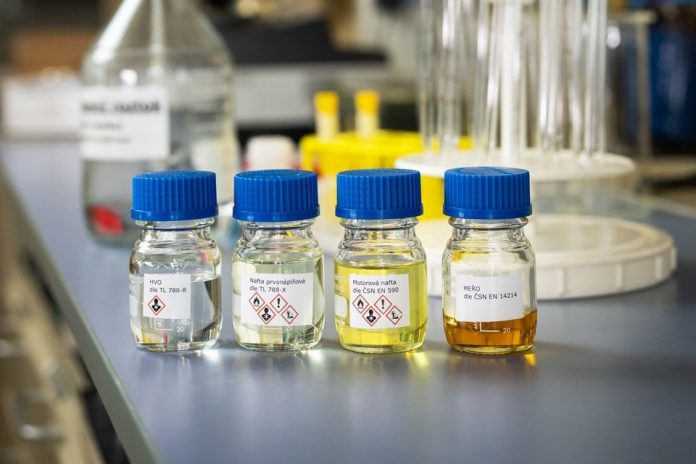Škoda now uses sustainable HVO (hydrotreated vegetable oil) fuel as the initial fill for newly manufactured diesel models produced at its Czech factories and for refuelling its logistics fleet. This synthetic diesel is produced from waste materials and differs from biodiesel, which is derived from agricultural crops.
HVO fuel is made from used fats and oils through a chemical hydrogenation process and therefore does not require any farmland, making it even more sustainable. The advanced-generation biofuel is supplied by the Czech state-owned company ČEPRO. This initiative is part of the joint decarbonisation measures being implemented across the company and is designed to significantly reduce the carbon footprint of Škoda’s corporate activities. In production and logistics, the Czech carmaker aims to achieve carbon-neutral operation at all its plants in the Czech Republic and India by the end of the decade.
“HVO fuel offers up to 90% lower net carbon emissions compared to fossil diesel. As the first Volkswagen Group brand to adopt this innovative solution, we are utilizing HVO not only in our passenger vehicles but also for refuelling trucks that manage internal logistics at our Czech plants. From August to December 2024, these internal vehicles consumed approximately 46,000 litres of HVO fuel – corresponding to an annual saving of around 300 tonnes of CO₂. This initiative marks a significant step towards reducing the carbon footprint of our operations and achieving CO₂-neutral production at our manufacturing sites.” – Karsten Schnake, Škoda Auto Board Member for Procurement and Sustainability Representative of the Board
All Škoda diesel models from model year 2022 onwards (produced from calendar week 25 of 2021) are approved to use HVO fuel. HVO-approved vehicles are marked with an XTL symbol on the fuel filler cap, while older models can have their compatibility confirmed by authorised Škoda dealers. HVO fuel and HVO-diesel blends are now widely available across European markets.




